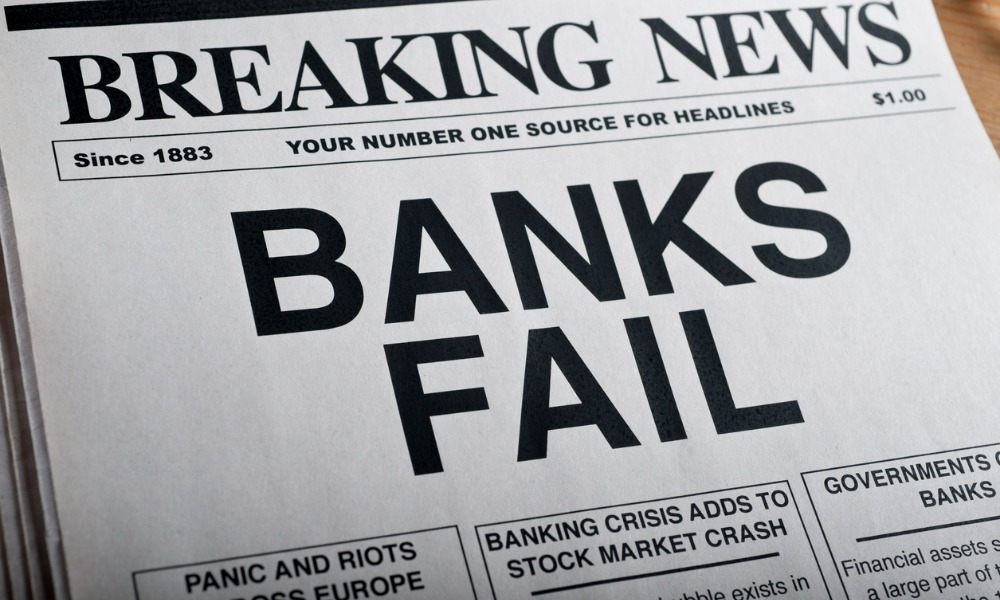Another one bites the dust. So what will the Fed do with the interest rate?

Federal regulators took over San Francisco-based First Republic Bank on Monday, marking the third major bank failure of a US financial institution in less than two months.
Reaction poured in from pundits about potential implications of the collapse, occurring the day before the next meeting of the Federal Reserve during which the central bank was expected to raise rates yet again to further curb inflation.
The bank’s failure is being blamed on its business model focused on catering to wealthy investors – a strategy that has proved effective in the best of times but now changed amid broad market uncertainty.
“Some of that has to with the fact that they were lending below market rates to wealthy individuals and got caught when interest rates went back up,” Melissa Cohn, regional vice president of Williams Raveis Mortgage, told Mortgage Professional America in an email. Still, she urged observers not to lump regional banks’ woes to the financial industry in general: “So what’s going on with them is not what’s going on in the [overall] banking sector,” she said.
The Federal Deposit Insurance Corp. [FDIC] reported that JPMorgan Chase had taken over the regional bank’s assets. “Our government invited us and others to step up, and we did,” JPMorgan Chase CEO Jamie Dimon said in a prepared statement. “This acquisition modestly benefits our company overall, it is accretive to shareholders, it helps further advance our wealth strategy, and it is complementary to our existing franchise.”
JPMorgan Chase takes control
As the FDIC-appointed receiver, JPMorgan Chase assumed all deposits, including all uninsured deposits and assets of First Republic Bank – including $173 billion in loans and some $30 billion worth of securities. The failure comes on the heels of the collapse of Silicon Valley Bank and Signature Bank in March.
Despite the latest bank failure, Cohn noted, the Fed is likely to raise the interest rate again as it seeks to bring down inflation to the historically desired rate of 2% -- three percentage points down from the current level of 5%. Despite the turmoil, Cohn added, the Fed will likely raise the interest rate by another 25 basis points at its May 2-3 meeting.
With nine consecutive rate hikes over the past several months, the Fed now finds itself “backed into a corner,” Cohn said, necessitating another quarter-percent rate increase to mitigate inflation. In describing the Fed’s inflation-busting alchemy, Cohn noted that US gross domestic product rose by 1.1% in Q1, compared to a 2.6% growth in Q4 2022. “While growth in the first quarter was dragged down by high interest rates and a weaker housing sector, the declines were offset by robust consumer spending,” she said. “The 3.7% level of spending by consumers in the fourth quarter was unexpected,” she added, noting that development will force the Fed to raise rates again.
Events fan fears
The double-whammy of yet another regional bank failure coupled with further Fed action on rates helped raise anxiety levels – even as JPMorgan Chase sought to assuage fears. Its takeover of bank assets included the First Republic website in which it addressed concerns in an open letter titled “A Message to First Republic clients from JPMorgan Chase.”
In the letter, JPMorgan Chase officials said it would be business as usual: “You will receive uninterrupted service. All preferred banking offices will operate as usual. You can continue visiting your local First Republic preferred banking office to make financial transactions, and over time you will have access to JPMorgan Chase’s extensive branch network, the largest in the country, which includes more than 4,700 Chase branches across all lower 48 states and the District of Columbia, and 16,000 ATMs in 49 states.”
Such assurances failed to calm fears of wider collapse from potential contagion.
“The consolidation of banks is not good for small businesses and puts risk in the financial system,” Henri-Pierre Jacques, managing partner of Harlem Capital, wrote on LinkedIn. “Hence too big to fail. There is confusing economic data – such as high earnings and low unemployment – but increasing interest rates and consumer debt. Ultimately, no one knows whether a recession (another one) will occur, but three of the four largest US bank failures happening within months is surely concerning.”
Sen. Elizabeth Warren (D-MA) called for bolstered regulation: “The failure of First Republic Bank shows how deregulation has made the too big to fail problem even worse,” she wrote on Twitter. “A poorly supervised bank was snapped up by an even bigger bank – ultimately taxpayers will be on the hook. Congress needs to make major reforms to fix a broken banking system.”
Want to make your inbox flourish with mortgage-focused news content? Get exclusive interviews, breaking news, industry events in your inbox, and always be the first to know by subscribing to our FREE daily newsletter.



